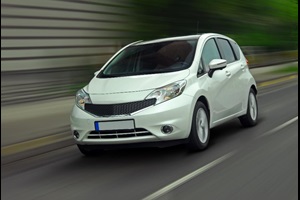- Transportation Efficiencies
- United Kingdom
- Automotive OEMs
- European Union
- Brexit
The Automotive Industry and Brexit

The EU was established as a customs union to set tariffs on goods coming from outside the EU, with member states not allowed to negotiate their own trade deals. Every deal made by the EU is binding on all members. The EU is a tariff-free trading area among the member states.
Because of the need to wait for a new prime minister and extensive treaty negotiations, the Brexit process is expected to take 2 years or more. The biggest unknown facing business is the nature of trade after the exit. Will there still be free trade between EU countries and the United Kingdom, or will tariffs be introduced? If tariffs, at what rate? If no new deal is made, the World Trade Organization (WTO) rules mean the United Kingdom and EU would be obliged to apply to each other the tariffs and other trade restrictions they apply to the rest of the world. Other possibilities include membership of the European Free Trade Association and/or the European Economic Area, or even a unilateral free trade policy (e.g., Hong Kong). All of the options must be considered by the U.K. Government, so a quick decision is unlikely.
The Automotive Impact
A free trade deal for goods between the EU and the United Kingdom would allow OEMs and suppliers to continue business pretty much as usual. European manufacturers are likely to lobby hard for such an arrangement, both to continue selling U.K.-built vehicles in the EU and to retain access to the lucrative U.K. market for vehicles assembled on the continent. Car buyers in the United Kingdom may benefit from lowering or eliminating tariffs from countries outside the EU, putting downward pressure on pricing.
In a scenario where WTO tariffs are imposed between the United Kingdom and the EU, new free trade deals could cause changes in business processes across Europe. The United Kingdom has the potential to become a European hub for international trade, building cars mainly for local sales and export to non-EU countries. If that happens, in the longer term there will be a need for suppliers to invest in parts manufacture in the United Kingdom. No longer restrained by EU state aid rules, the U.K. government would be able to offer additional support to companies that wish to open new facilities. Factories within the EU could then focus on producing vehicles for the internal market.
An Industry in Flux
It is, however, important to recognize that this new European trading issue comes at a time when the industry is facing major changes due to other factors such as stricter emissions regulations, greater powertrain electrification, autonomous driving, wireless connectivity, and the growth of carsharing and ride hailing. The Guidehouse Insights white paper Transportation Outlook: 2025-2050 offers more insight on these changes. The United Kingdom could become a test bed for new technology before it is rolled out globally.
While industry waits for the U.K. Government’s detailed trade negotiations with the EU, automotive companies can take advantage of the short-term business-as-usual to analyze their engineering and business processes and value chains so that they are prepared for any outcome. There is potential for increased efficiency and profitability in the long term for those companies that adapt best to embrace the future of clean mobility on demand. Brexit may turn out to be a catalyst for positive change.